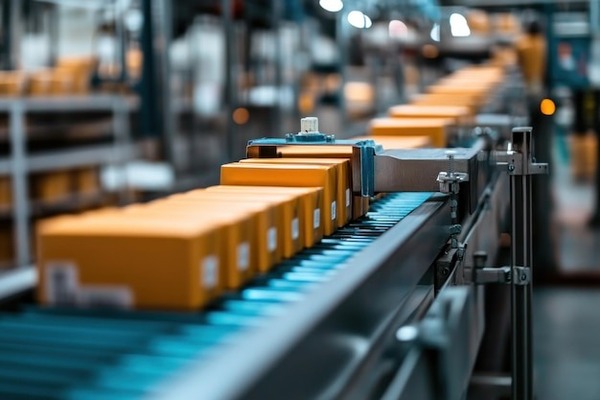ALL BUSINESS
COMIDA
DIRECTORIES
ENTERTAINMENT
FINER THINGS
FREE CREATOR TOOLS
HEALTH
MARKETPLACE
MEMBER's ONLY
MONEY MATTER$
MOTIVATIONAL
NEWS & WEATHER
TECHNOLOGIA
TV NETWORKS
VIDEOS
VOTE USA 2026/2028
INVESTOR RELATIONS
ALL BUSINESS
COMIDA
DIRECTORIES
ENTERTAINMENT
FINER THINGS
FREE CREATOR TOOLS
HEALTH
MARKETPLACE
MEMBER's ONLY
MONEY MATTER$
MOTIVATIONAL
NEWS & WEATHER
TECHNOLOGIA
TV NETWORKS
VIDEOS
VOTE USA 2026/2028
INVESTOR RELATIONS
 Smith Davies -
12 hours ago -
Business -
41 views -
0 Comments -
0 Likes -
0 Reviews
Smith Davies -
12 hours ago -
Business -
41 views -
0 Comments -
0 Likes -
0 Reviews

Conveyor systems are vital to many industries, including manufacturing, warehousing, e-commerce, and food processing, where they streamline material handling and significantly improve overall efficiency. However, businesses often face the dilemma of investing in a custom warehouse conveyor system or choosing a standard solution. Custom systems typically come with a higher initial cost but also offer specific benefits that can lead to significant long-term savings.
One of the primary concerns when designing a custom conveyor system is the upfront cost. Custom systems require detailed engineering, advanced technology, and specialized materials, all contributing to higher expenses than standard off-the-shelf conveyors. The cost of a custom conveyor depends on several factors:
While the initial investment is higher, these costs often yield significant returns when the system is tailored to the business's requirements.
Custom warehouse conveyor systems provide advantages that standard systems cannot match, making them an excellent choice for businesses with specialized requirements.
These benefits improve day-to-day operations and enhance long-term productivity and profitability.
When evaluating if a custom conveyor system is worth the investment, it’s crucial to calculate its return on investment (ROI). The ROI measures the financial benefits gained from the system compared to its cost. Key metrics to consider include:
For example, a manufacturing plant that implements a custom conveyor system may see a 20% increase in throughput while reducing labor costs by 15%. Over time, these savings can easily offset the initial investment.
While standard warehouse conveyor systems are more affordable and quicker to install, they come with limitations. They are designed for general use and may not address specific operational challenges or product requirements.
On the other hand, custom conveyor systems provide solutions designed to address specific operational challenges. They can handle specialized applications, such as delicate product transport or high-speed sorting, which standard systems cannot. However, the added design time and upfront costs must be factored into the decision.
Businesses with complex or growing operations benefit the most from custom conveyor systems, while those with straightforward requirements may find standard systems sufficient.
Designing a custom warehouse conveyor system requires collaboration with experienced professionals. Engineers and conveyor design experts bring valuable insights, helping you assess your operational requirements and translate them into an efficient solution.
Professional design teams use advanced tools, such as 3D CAD models, to create mock-ups and prototypes, allowing you to visualize the system before installation. They also ensure the system meets industry safety, efficiency, and reliability standards.
By working with professionals, you gain access to expert advice on material selection, automation options, and scalability planning, ensuring your investment is optimized for long-term success.
Custom conveyor systems may have a higher initial cost, but their tailored design and long-term benefits often make them worthwhile investments. By partnering with experienced design professionals, you can create a system that enhances efficiency, reduces costs, and supports your business's growth for years. If you’re considering a custom solution, consult experts to explore how a personalized conveyor system can transform your operations.

